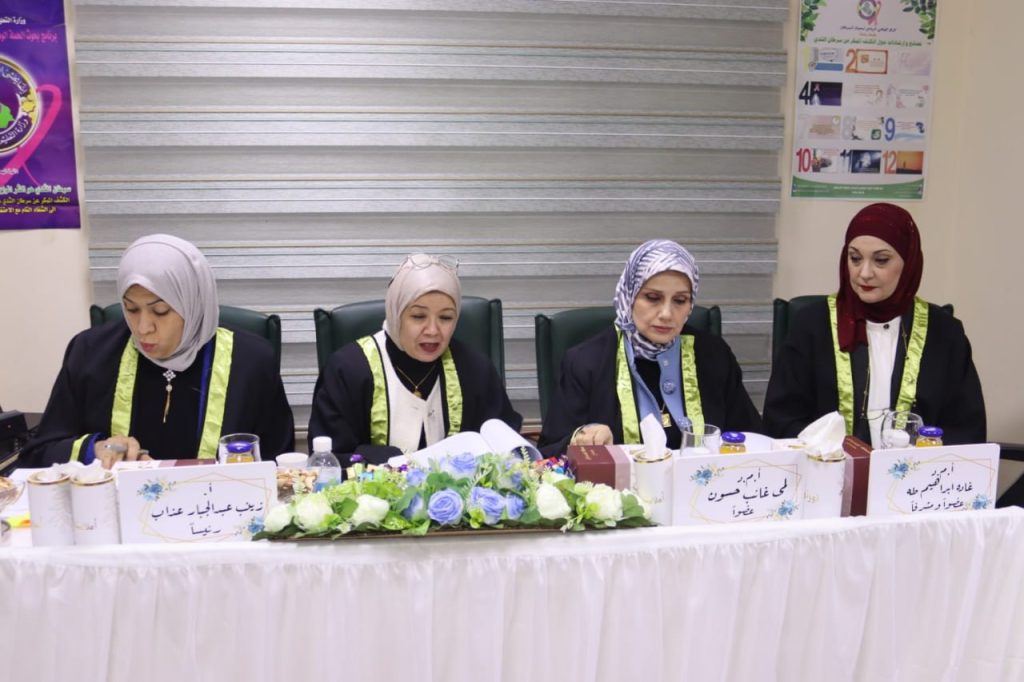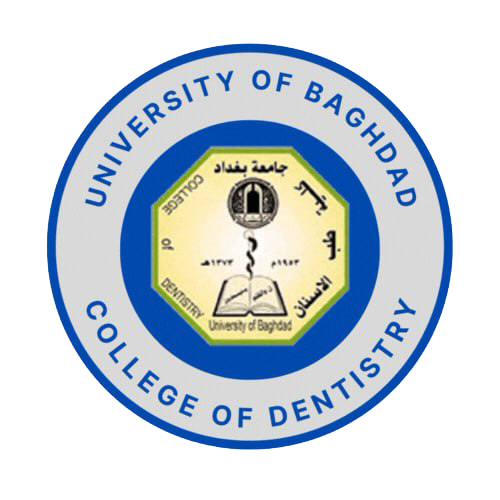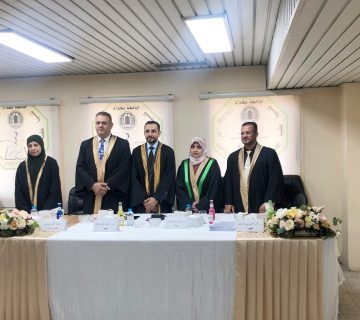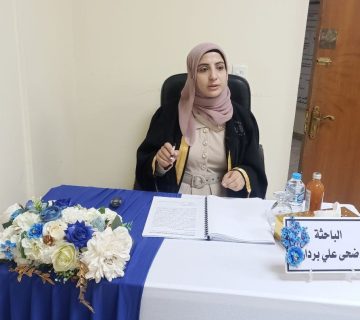The College of Dentistry at the University of Baghdad discussed the master’s thesis entitled: The potential role of extracellular neutrophil network levels, monocyte chemoattractant protein-1, interleukin-6, and interleukin-23 in the first and third stages of periodontitis. By the student Muhammad Faisal Ali.
The aim of the thesis: To measure the volume of gingival fissure fluid using Periotron® and potential biomarkers (extracellular neutrophil traps, monocyte chemoattractant protein-1, interleukin-6, and interleukin-23) to predict the severity and progression of periodontal disease. The message also included: Results: A significant increase in neutrophil trap levels was observed in patients with stage 3 periodontitis compared to stage 1 periodontitis and healthy controls. This increase in neutrophil traps was significantly associated with higher gingival tight fluid volume. Similarly, monocyte chemoattractant protein-1 levels in gingival tight fluid were significantly higher in stage 3 periodontitis compared to stage 1 and healthy controls. Interleukin-6 levels in gingival tight fluid were also significantly higher in stage 3 periodontitis compared to both stage 1 and healthy controls. Additionally, the increase in interleukin-23 levels in stage 3 periodontitis compared to stage 1 periodontitis and healthy controls was highly statistically significant, and these increases were similarly associated with a larger gingival tight fluid volume.
The most important recommendations of the study:
1. Further research is needed to explore the precise functions of GCF, especially in larger and more diverse populations across different geographic regions.
2. Investigation of genetic variants of NETs and MCP-1 in periodontitis patients may lead to the identification of new candidate targets related to disease susceptibility.
3. The research should be expanded to include genetic polymorphisms of other influential inflammatory mediators such as NETs, MCP-1, interferons, Toll-like receptors (TLR), CD-14, and Fc receptors.
4. Comparative analysis of biomarkers in GCF and saliva samples using advanced tools such as periotron would help in developing non-invasive diagnostic methods for periodontitis, providing more practical and accessible means for disease monitoring.
5. The study pipeline should be expanded to consider more bacterial species and immune biomarkers.
The thesis was accepted by the discussion committee.










